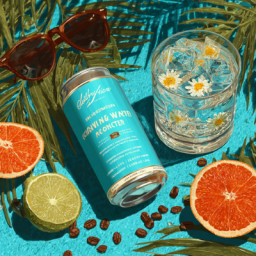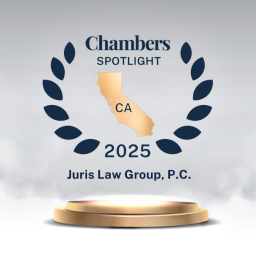
In today’s dynamic marketing landscape, brand partnerships and endorsements offer significant opportunities for growth. However, without meticulous legal structuring, these collaborations can expose brands to substantial risks. This guide provides insights into crafting legally sound agreements that protect brand equity while fostering successful partnerships.
What Makes a Brand Partnership Legally Successful?
A legally successful brand partnership hinges on clear, comprehensive agreements that define the scope of collaboration, protect intellectual property, and ensure compliance with regulatory standards. Such agreements not only safeguard against potential disputes but also lay the foundation for a mutually beneficial relationship that aligns with both parties’ strategic objectives.
Why Smart Legal Structuring Matters in Brand Partnerships
Effective legal structuring is crucial in brand partnerships to delineate responsibilities, manage expectations, and mitigate risks. Without it, brands may face challenges such as unauthorized use of intellectual property, non-compliance with advertising regulations, and potential reputational damage. A well-structured agreement serves as a roadmap, guiding the partnership towards achieving its intended goals while maintaining legal and ethical standards.
Key Components of a Strong Brand Partnership Agreement
1. Clear Endorsement and Sponsorship Terms
Defining the scope of work, deliverables, and timelines is essential. This includes specifying the nature of promotional activities, duration of the partnership, and any exclusivity clauses. Clarity in these terms ensures both parties have aligned expectations, reducing the likelihood of misunderstandings.
2. Influencer and Affiliate Agreements
With the rise of social media marketing, influencer agreements must address unique challenges. Contracts should include provisions for content approval, platform-specific guidelines, and compliance with the Federal Trade Commission (FTC) disclosure requirements. Ensuring that influencers clearly disclose sponsored content is not only a legal obligation but also maintains transparency with consumers.
3. Performance and Engagement Clauses
Incorporating performance metrics such as engagement rates, conversion rates, and reach can align the partnership’s success with measurable outcomes. These clauses provide a basis for evaluating the effectiveness of the collaboration and can inform decisions on compensation and future engagements.
4. Termination, Morality Clauses, and Brand Safety
Including termination clauses allows for the dissolution of the partnership under predefined circumstances, such as breach of contract or reputational harm. Morality clauses are particularly important, granting brands the right to terminate agreements if the partner’s actions negatively impact the brand’s image. These provisions protect the brand’s integrity and public perception.
5. Exclusivity, Usage Rights, and Royalties
Clearly outlining exclusivity terms prevents conflicts of interest and ensures that partners do not engage with direct competitors during the agreement’s term. Defining usage rights for created content and establishing royalty structures for ongoing use are also critical to protect intellectual property and ensure fair compensation.
Our Track Record: Trusted By Innovative Brands
Juris Law Group has a proven history of facilitating successful brand partnerships across various industries, including food and beverage, beauty, health and wellness, and consumer goods. Our expertise lies in crafting tailored agreements that balance creative freedom with legal safeguards, ensuring our clients’ interests are protected while enabling innovative collaborations.
Frequently Asked Questions About Brand Partnerships and Endorsements
Question 1: What is a brand partnership agreement?
A brand partnership agreement is a legally binding document that outlines the terms and conditions of a collaboration between a brand and a partner, such as an influencer or another company. It details responsibilities, compensation, intellectual property rights, and compliance requirements.
Question 2: Why are influencer contracts important for marketing campaigns?
Influencer contracts are vital to ensure that both parties understand their obligations, particularly regarding content creation, disclosure of sponsorships, and adherence to advertising regulations. These contracts help prevent legal issues and protect brand reputation.
Question 3: What is a morality clause, and why should brands include one?
A morality clause allows a brand to terminate a partnership if the partner engages in behavior that could harm the brand’s image. Including such a clause safeguards the brand against potential reputational damage resulting from the partner’s actions.
Question 4: How do exclusivity clauses benefit brands?
Exclusivity clauses prevent partners from promoting competing products or services during the agreement’s duration, ensuring that the brand’s message remains unique and undiluted in the market.
Question 5: What legal risks exist if an influencer fails to disclose sponsorship?
Failure to disclose sponsored content can lead to violations of FTC guidelines, resulting in legal penalties and damage to both the influencer’s and the brand’s credibility. Proper contractual agreements help ensure compliance with disclosure requirements.
Final Thoughts: Strategic Partnerships Start with Smart Legal Structuring
In the realm of brand partnerships and endorsements, the intersection of creativity and legal compliance is where successful collaborations thrive. By prioritizing clear agreements, compliance with advertising regulations, and protection of intellectual property, brands can forge partnerships that not only enhance visibility but also uphold their integrity and values. Engaging experienced legal counsel is a proactive step towards building resilient and fruitful brand alliances.








